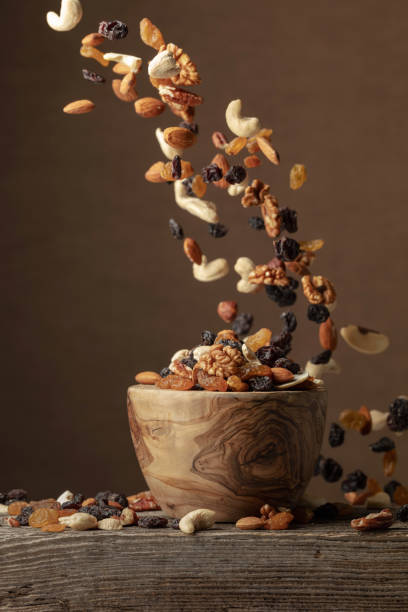Managing Diabetes Deliciously with Strawberries
Managing Diabetes Deliciously with Strawberries

Managing diabetes is a multifaceted endeavor that encompasses diet, exercise, and medication. Diet, in particular, plays a crucial role in controlling blood glucose levels, and the inclusion of certain fruits, such as strawberries, can be particularly beneficial. This article delves into the role of strawberries in diabetes management, supported by scientific insights and expert opinions.
Nutritional Profile of Strawberries
The nutritional profile of strawberries is quite impressive, making them a popular choice not only for their flavor but also for their health benefits. Let’s delve into the details of what makes strawberries a nutritious choice, especially for those who are health-conscious or managing conditions like diabetes.

Macronutrients:
- Calories: One cup of sliced strawberries (approximately 152 grams) contains about 53 calories, making them a low-calorie food option.
- Carbohydrates: This same serving size has about 12.7 grams of carbohydrates, which includes natural sugars and dietary fiber. The natural sugars give strawberries their sweet taste, while the fiber content is beneficial for digestion and helps moderate blood sugar levels.
- Protein: Strawberries contain about 1.11 grams of protein per cup, which isn’t significant, but it contributes to the overall nutritional value.
- Fats: Strawberries are virtually fat-free, with only 0.50 grams per cup, emphasizing their place in a low-fat diet.
Vitamins:
- Vitamin C: Strawberries are an excellent source of vitamin C, with one cup providing approximately 149% of the daily recommended intake. Vitamin C is essential for the growth and repair of tissues throughout the body and acts as an antioxidant.
- Folate (Vitamin B9): They provide about 9% of the daily recommended intake of folate, a vitamin that plays a key role in cell division and the formation of DNA, During times of rapid growth, such as infancy and pregnancy, this becomes particularly critical.
- Vitamin K: Strawberries offer a moderate amount of vitamin K, essential for blood clotting and bone health.
Minerals:
- Manganese: This mineral, vital for many body processes, including the metabolism of amino acids, cholesterol, glucose, and carbohydrates, is present in strawberries at about 29% of the daily recommended intake per cup.
- Potassium: With about 254 milligrams per cup, strawberries contribute to the necessary daily intake of potassium, essential for heart function and plays a key role in skeletal and Helping your body function smoothly, the contraction of smooth muscles is crucial for normal digestive and muscular function.
Antioxidants and Phytochemicals:
- Anthocyanins: Strawberries are rich in anthocyanins, the compounds that give them their red color. Anthocyanins are known for their antioxidant properties, helping to fight oxidative stress and potentially reduce the risk of chronic diseases.
- Ellagic Acid: This compound is another antioxidant found in strawberries that may have several health benefits, including anti-inflammatory effects and potential anti-cancer properties.
Dietary Fiber:
- Fiber: With about 3.3 grams per cup, the dietary fiber in strawberries helps to maintain bowel health, lower cholesterol levels, and regulate blood sugar levels.
Incorporating strawberries into one’s diet offers a range of nutrients that can contribute to overall health. Their low glycemic index and high fiber content make them particularly suitable for individuals with diabetes, as they have a more gradual impact on blood sugar levels compared to higher glycemic fruits.
Antioxidants in Strawberries and Diabetes
Antioxidants in strawberries play a significant role in managing and potentially reducing the risk of diabetes. These natural compounds combat oxidative stress, a condition characterized by an imbalance between free radicals and antioxidants in the body, which is linked to the development of chronic diseases, including type 2 diabetes.

Key Antioxidants in Strawberries and Their Impact on Diabetes:
- Anthocyanins: Strawberries are rich in anthocyanins, which are responsible for their vibrant red color. These compounds have been shown to enhance insulin sensitivity, reduce inflammation, and improve blood glucose control, all of which are beneficial for individuals with diabetes. Studies suggest that anthocyanins can help modulate carbohydrate metabolism and insulin signaling, leading to improved glycemic control.
- Ellagic Acid: Another notable antioxidant in strawberries is ellagic acid. It has been studied for its anti-inflammatory and anti-cancer properties and is thought to have a positive effect on glucose metabolism, helping to prevent spikes in blood sugar levels after meals.
- Vitamin C: Strawberries are an excellent source of vitamin C, an antioxidant that not only boosts the immune system but also plays a role in preventing diabetic complications. Vitamin C helps in the reduction of oxidative stress and the prevention of blood vessel damage, which are common concerns in diabetes management.
How Antioxidants in Strawberries Benefit Diabetics:
- Improving Insulin Sensitivity: By enhancing insulin sensitivity, the antioxidants in strawberries can help the body use insulin more effectively, reducing blood glucose levels and the risk of insulin resistance, a hallmark of type 2 diabetes.
- Reducing Inflammation: Chronic inflammation is a known contributor to the development of diabetes. The anti-inflammatory properties of antioxidants in strawberries can help mitigate this risk, contributing to overall diabetes management.
- Combatting Oxidative Stress: Oxidative stress plays a role in the onset and progression of diabetes and its complications. The antioxidants in strawberries help neutralize free radicals, reducing oxidative stress and potentially lowering the risk of diabetes-related complications.
- Supporting Cardiovascular Health: Diabetes increases the risk of cardiovascular diseases. The antioxidants in strawberries can help protect the heart and blood vessels, reducing the risk of heart disease in people with diabetes.
The Impact on Blood Sugar Levels
The impact of strawberries on blood sugar levels, particularly for individuals with diabetes, is a topic of considerable interest due to the fruit’s unique nutritional profile. Understanding how strawberries influence blood glucose is crucial for effective diabetes management.
Glycemic Index and Glycemic Load
Managing Diabetes with Strawberries have a low glycemic index (GI), typically ranging between 40 and 41, which is much lower than many other fruits. Foods with a low GI are absorbed more slowly, causing a gradual rise in blood sugar levels rather than a sharp spike.
Moreover, the glycemic load (GL) of strawberries is also low. Glycemic load takes into account the GI as well as the carbohydrate content in a serving size of the food. Since strawberries contain relatively few carbohydrates per serving, their GL is low, making them an excellent choice for blood sugar control.
Fiber Content
Strawberries are rich in dietary fiber, with about 3 grams per cup. The fiber in strawberries helps modulate the body’s response to sugar, contributing to more stable blood glucose levels over time.
Antioxidants and Phytochemicals
As previously discussed, the antioxidants and phytochemicals in strawberries, such as anthocyanins and ellagic acid, may have beneficial effects on insulin sensitivity and glucose metabolism. Improved insulin sensitivity can lead to better blood sugar control, reducing the likelihood of spikes after meals.
Real-world Impact on Blood Sugar Levels
While the theoretical benefits of strawberries in managing blood sugar are clear, individual responses can vary. People with diabetes should monitor their blood glucose levels to understand how strawberries affect them personally. This monitoring is crucial because individual responses to foods can vary based on a variety of factors, including overall diet, activity levels, and diabetes blood sugar levels management strategies.

Portion Size and Consumption Tips
Even though strawberries are beneficial, portion size still matters. Consuming strawberries in moderation, as part of a balanced diet, is essential to avoid excessive carbohydrate intake. Here are a few tips for incorporating strawberries into a diabetes-friendly diet:
- Pair strawberries with a source of healthy fat or protein to further stabilize blood sugar levels. For example, strawberries can be paired with a small handful of nuts or a spoonful of Greek yogurt.
- Be mindful of the preparation method. Fresh or frozen strawberries are preferable to processed forms like jams or syrups, which often contain added sugars.
- Use strawberries to add natural sweetness to dishes, reducing the need for additional sugar.
Incorporating Strawberries into a Diabetic Diet
Incorporating strawberries into a diabetes diet plan can be a delightful and nutritious way to add variety while managing blood sugar levels effectively. Here are some strategies and ideas for including strawberries in a diabetes-friendly diet, ensuring both health benefits and culinary enjoyment:
diabetes breakfast ideas
- Strawberry Smoothie: Blend fresh or frozen strawberries with a scoop of protein powder, unsweetened almond milk, and a handful of spinach. The protein and fiber will help stabilize blood sugar levels.
- Oatmeal Topping: Add sliced strawberries to a bowl of steel-cut oatmeal. Opt for oatmeal as it has a lower GI, and the strawberries will add natural sweetness and nutrients without a significant sugar spike.
- Yogurt Parfait: Layer Greek yogurt with strawberries and a sprinkle of chia seeds or nuts for a balanced breakfast. The protein in the yogurt and the fiber in the berries and seeds can help prevent blood sugar spikes.
Lunch and Dinner Ideas
- Salads: Incorporate sliced strawberries into a mixed green salad with grilled chicken, spinach, and nuts. The berries add a burst of flavor and antioxidants, while the protein and healthy fats contribute to a balanced meal.
- Savory Dishes: Use strawberries in salsa or as a garnish for grilled fish or chicken. Their sweetness can complement the savory flavors, offering a unique twist to your meals.
diabetes snacks
- Strawberry Skewers: Alternate fresh strawberries with cubes of cheese on skewers. The combination of fruit and cheese provides fiber, protein, and healthy fats, aiding in blood sugar control.
- Smoothie Popsicles: Make homemade popsicles with strawberry smoothie mix. These can be a refreshing snack, especially in warm weather, without the added sugars found in commercial popsicles.
Dessert Options
- Strawberry Compote: Make a simple compote by simmering strawberries with a touch of lemon juice and a sweetener suitable for diabetes management, like stevia. Serve it over a small portion of whole-grain pancakes or waffles.
- Fresh Strawberry Bowl: Sometimes, a simple bowl of fresh strawberries can satisfy a sweet craving. Pair with a dollop of whipped cream or a sprinkle of cinnamon for added flavor without significantly increasing the carb content.
Tips for Incorporating Strawberries
- Portion Control: Keep track of carbohydrate intake when consuming strawberries, ensuring it aligns with your overall meal plan.
- Whole Fruit: Opt for whole, fresh strawberries rather than processed forms to avoid added sugars and benefit from the full fiber content.
- Blood Sugar Monitoring: Initially, monitor your blood sugar levels after eating strawberries to understand their impact and adjust portions accordingly.
- Variety: Combine strawberries with other low-GI fruits for variety while managing overall carbohydrate intake.
By creatively incorporating strawberries into your diet, you can enjoy their health benefits, including fiber, vitamins, and antioxidants, while delighting in their natural sweetness and flavor diversity. Always remember to adjust based on personal blood sugar responses and dietary needs, consulting with a healthcare provider for personalized advice.

Consultation with Healthcare Providers
While Managing Diabetes with strawberries offer numerous benefits, it’s essential for individuals with diabetes to consult with healthcare providers before making significant dietary changes. Dietitians and endocrinologists can provide personalized advice that considers the individual’s overall health status, medication regimen, and blood sugar control.
Conclusion
Managing Diabetes with Strawberries can play a beneficial role in managing diabetes, thanks to their low GI, fiber content, and antioxidant properties. They offer a sweet yet healthy option for individuals looking to diversify their diet while keeping an eye on their blood sugar levels. As with any dietary change, it’s crucial to approach this with the guidance of healthcare professionals to ensure it aligns with one’s overall diabetes management plan.
In summary, strawberries are not just a delicious fruit but also a valuable ally in the dietary management of diabetes, contributing to a balanced, nutrient-rich diet that supports overall health and well-being.





